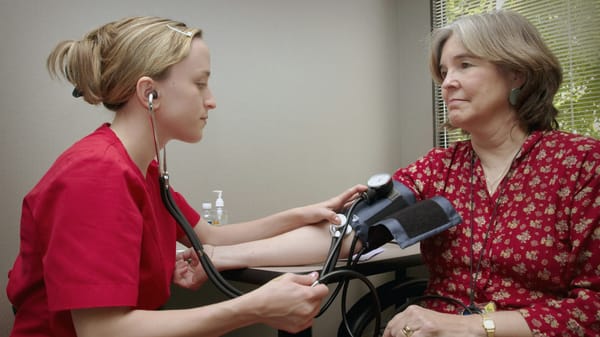Optimizing Female Hormone Health for Vitality and Longevity
Feeling off but can't pinpoint why? Your hormones might be the culprit. We look into the vital role hormones play in women's health, offering insights on vitality, longevity, and balance.

Did you know that hormonal imbalances can affect everything from your mood and energy levels to your sleep and digestion? Understanding these powerful chemical messengers is key to unlocking optimal health and well-being for women at every stage of life. From mood swings to metabolism, hormonal imbalances can profoundly affect daily life.
Key biomarkers, the critical role of the gut microbiome, and practical strategies for improving hormonal well-being are explored. From the importance of omega-3s to stress reduction techniques, evidence-based approaches address the needs of women at every stage of life. Understanding the body’s unique hormonal landscape reveals pathways to thriving health.
The Foundations of Female Hormone Health: Family History, Biomarkers, and Gut Microbiome
A comprehensive understanding of female hormone health begins with examining family history. The hormonal experiences of mothers and grandmothers often hold critical clues about potential patterns and predispositions. These intergenerational insights not only highlight genetic tendencies but also bring attention to the influence of intergenerational trauma on the endocrine system. Unresolved stress or trauma passed through generations can significantly impact hormonal balance, underscoring the importance of exploring family history as a foundation for understanding hormone health.
Key biomarkers offer valuable information about hormonal health at different life stages. For teenagers, monitoring cortisol, estrogen, and progesterone levels can provide early insights into hormonal imbalances. As women enter their 20s, a broader range of markers—including testosterone, DHEA, estrogen metabolites, and microbiome health—becomes essential. The timing of these tests is equally crucial; for women with regular cycles, Day 21-22 is optimal, while adjustments are necessary for irregular cycles to ensure accurate results.
The gut microbiome plays a pivotal role in female hormone health, particularly through the estrobolome—a subset of gut bacteria that influences estrogen levels and metabolism. An imbalanced gut microbiome can disrupt hormonal harmony, making gut health a cornerstone of overall well-being. Addressing specific needs of the microbiome through diet, probiotics, and lifestyle adjustments can support optimal hormonal function.
Nutrition and exercise are integral to maintaining hormonal health. Omega-3 fatty acids are particularly beneficial, offering anti-inflammatory properties that support hormone regulation. These essential fats can be sourced from fatty fish, flaxseeds, and walnuts. Exercise also plays a key role, with resistance training and cardiovascular workouts recommended in specific ratios to enhance hormonal balance. Interestingly, research reveals surprising links between certain types of exercise and improved hormone health.
Digestive health is another critical factor, as women are more prone to digestive issues than men. These issues can exacerbate hormonal imbalances, making it essential to address them proactively. Tools like increasing fiber intake, managing stress, and incorporating prebiotics can alleviate digestive challenges and improve hormone-related health outcomes. Together, these foundational elements create a robust framework for optimizing female hormone health.
Diagnostics and Solutions: Navigating Hormone Health with Precision
Effective management of hormone health begins with accurate testing and diagnostics. Blood tests, urine tests, and microbiome assessments are indispensable tools for understanding hormone status. Blood tests provide a snapshot of hormone levels, while urine tests offer a detailed analysis of hormone metabolites. Microbiome tests delve into gut health, uncovering imbalances that could disrupt hormonal harmony. These diagnostic tools not only reveal current hormone levels but also help map future trajectories, enabling proactive interventions to maintain balance.
Navigating perimenopause and menopause often involves hormone replacement therapy (HRT), a critical component of modern hormone health strategies. HRT addresses symptoms like hot flashes, mood swings, and sleep disturbances while supporting long-term health outcomes. Understanding the “hormone cure”, the interplay between food, lifestyle, and hormone health, is essential for maximizing the benefits of HRT and promoting overall well-being.
Stress management is another cornerstone of hormonal health. Real-time tools such as physiological sighs, box breathing, and cyclic sighs provide immediate relief from stress, while long-term practices like mindfulness and meditation build resilience over time. Chronic stress not only disrupts hormone levels but can also contribute to issues like constipation, a signal of underlying imbalance. Addressing constipation with fiber intake, prebiotics, and stress reduction strategies helps restore digestive and hormonal health.
Psychosocial factors also play a significant role in hormone health. The broader impact of societal stressors, including patriarchy, can affect women’s well-being, influencing the endocrine system and exacerbating conditions like PCOS (polycystic ovary syndrome). Research suggests a link between stress, androgen levels, and PCOS, highlighting the need for comprehensive care. PCOS is not just a reproductive condition but also a marker for long-term cardiometabolic risks, emphasizing the importance of early diagnosis and management.
By leveraging advanced diagnostics, embracing effective stress management tools, and understanding the psychosocial dimensions of health, women can take meaningful steps toward hormonal balance and overall well-being. These strategies pave the way for improved quality of life at every stage.
Balancing Hormones: The Role of Insulin, Glucose, and Stress
Hormonal balance hinges on understanding the intricate interplay between insulin, glucose, and overall metabolic health. For women with polycystic ovary syndrome (PCOS), this relationship is particularly critical. Insulin resistance, a common feature of PCOS, can lead to elevated glucose levels, exacerbating hormonal imbalances and increasing the risk of cardiometabolic complications. Improving insulin sensitivity through diet, exercise, and lifestyle modifications is essential for managing PCOS and restoring hormonal equilibrium.
Continuous glucose monitors (CGMs) have emerged as a valuable tool in this context, offering real-time insights into glucose fluctuations. By tracking glucose levels, women can identify dietary and lifestyle patterns that impact their metabolic health. This personalized feedback fosters behavior changes that enhance insulin sensitivity, reduce inflammation, and promote hormonal stability. CGMs not only support immediate health improvements but also encourage long-term habits that benefit overall well-being.
Cortisol, the body’s primary stress hormone, plays a significant role in hormonal health. Chronic stress can drive cortisol levels higher, disrupting sleep, appetite, and mood. High cortisol levels are also linked to insulin resistance, creating a cycle that undermines metabolic and hormonal health. Tools like ashwagandha, rhodiola rosea, and phosphatidylserine have shown promise in regulating cortisol levels, while stress management practices such as yoga, meditation, and breathwork offer sustainable relief.
Oral contraceptives, widely used for birth control and hormone regulation, come with both benefits and risks. While they can help manage symptoms of hormonal disorders like PCOS, they may also impact natural hormone production over time. Understanding the long-term effects of oral contraceptives on hormone levels is vital for making informed choices about reproductive and overall health.
Fertility and ovarian reserve are key considerations for women planning for the future. Assessing markers like follicle number and anti-Müllerian hormone (AMH) levels provides insights into reproductive potential and informs decisions about family planning. For women in their 30s and beyond, proactive steps, such as lifestyle adjustments and, in some cases, fertility preservation, can help maintain reproductive health.
Finally, navigating menopause with the right support is crucial for maintaining quality of life. Hormone replacement therapy (HRT) can mitigate symptoms and protect against long-term health risks, but timing is key. Early initiation of HRT has been shown to offer more significant benefits, including reduced risks of osteoporosis and cognitive decline. Understanding these dynamics empowers women to make choices that align with their health goals and life stages.
Unlocking Health Insights: The Interplay of Metabolism, Gut Health, and Life Experiences
Cerebral hypometabolism, a decline in the brain’s ability to utilize glucose, often accompanies menopause due to reduced estrogen levels. This metabolic shift can lead to cognitive challenges, such as memory loss and difficulty concentrating, and may increase the risk of Alzheimer’s disease. Enhancing metabolic flexibility can play a vital role in mitigating these effects. Dietary approaches like intermittent fasting and the ketogenic diet offer promising benefits by promoting the brain’s ability to use ketones as an alternative energy source. These strategies also improve insulin sensitivity, reducing the risk of diabetes, metabolic syndrome, and cardiovascular complications.
Gut health is another crucial factor in overall well-being, with a strong connection to cognitive and metabolic functions. Stool testing provides a window into the health of the gut microbiome, offering insights into imbalances, inflammation, and digestive issues. Tests like comprehensive stool analyses or microbiome sequencing help identify underlying problems that can be addressed through targeted dietary changes, probiotics, and stress management. A healthy gut not only supports digestion but also influences brain health and immune function, highlighting the importance of regular monitoring and intervention.
Cardiometabolic health is another area where proactive testing can save lives. By age 45, obtaining a coronary artery calcium (CAC) score becomes critical for assessing cardiovascular disease risk. This non-invasive test measures calcium deposits in the arteries, serving as a reliable indicator of potential heart disease. Early detection allows individuals to implement lifestyle changes, manage cholesterol levels, and adopt preventive strategies to reduce long-term risks.
Finally, the impact of adverse childhood experiences (ACEs) on health outcomes cannot be overstated. Trauma during formative years has been linked to increased risks of chronic diseases, mental health challenges, and shortened life expectancy. Understanding one’s ACE score fosters awareness of the long-term effects of unresolved trauma. Addressing these experiences through therapy, mindfulness, and community support can promote emotional resilience and improve physical health.
By integrating these insights into cerebral metabolism, gut health, cardiometabolic testing, and trauma awareness, individuals can adopt a holistic approach to well-being. These interconnected factors highlight the importance of proactive, personalized strategies to enhance health outcomes, empowering people to lead healthier, more fulfilling lives at every stage.
Maria's Path to Balance: How Understanding Hormones and Gut Health Transformed Her Life
Maria, a 42-year-old woman from Madrid, had always felt like her energy levels were gradually declining, but it wasn’t until she started experiencing irregular periods and mood swings that she realized something deeper was at play.
After months of struggling with fatigue and digestive issues, she consulted a healthcare professional who recommended hormone testing and gut health assessments. The results revealed that her estrogen levels were fluctuating, and her gut microbiome was imbalanced. Maria was prescribed a tailored approach, which included dietary changes, stress management techniques, and a probiotic regimen. Over the next few months, she noticed a significant improvement in her energy, mood, and digestion. Her periods became more regular, and she felt more balanced overall.
Her journey is a testament to how understanding the connection between hormones and gut health can empower women to regain control of their well-being, ensuring a healthier and more vibrant future.
Your Top Questions Answered
What causes hormone imbalance in women?
Hormonal imbalances in women can be caused by several factors, including puberty, pregnancy, perimenopause, and menopause. Chronic stress, poor diet, and underlying medical conditions like polycystic ovary syndrome (PCOS) or thyroid disorders can also disrupt hormone levels. Environmental toxins, certain medications, and genetics play roles as well. Addressing these factors through lifestyle changes, stress management, and proper medical care can help restore hormonal balance.
How do hormones affect women’s gut health?
Hormones significantly influence gut health in women. Estrogen and progesterone, for instance, impact gut motility, the microbiome composition, and digestive enzyme production. During hormonal shifts like menopause, the gut microbiome can become unbalanced, leading to issues like bloating, constipation, or digestive discomfort. A healthy gut microbiome supports hormone metabolism, and imbalances can exacerbate hormone-related symptoms. Proper nutrition, probiotics, and stress management are crucial for maintaining both gut and hormonal health.
What are the symptoms of hormonal imbalance?
Women experiencing hormonal imbalance may face a range of symptoms, including irregular periods, hot flashes, night sweats, and mood swings. Other common signs include fatigue, weight gain or difficulty losing weight, acne, hair loss, and sleep disturbances. These symptoms can arise due to various factors such as menopause, stress, thyroid dysfunction, or PCOS. It’s important for women to track symptoms and seek medical advice to address underlying hormonal issues and improve quality of life.
Can gut health impact hormonal balance?
Yes, gut health plays a vital role in hormonal balance for women. The gut microbiome helps metabolize estrogen and other hormones, and an imbalance can disrupt hormone regulation. For example, estrogen dominance can occur if the gut is unable to properly eliminate excess estrogen, leading to symptoms like heavy periods or mood swings. A healthy gut, supported by a balanced diet, probiotics, and fiber, can help manage hormone levels, reduce inflammation, and improve overall well-being.
How can women improve their gut health?
Women can improve gut health by incorporating fiber-rich foods like fruits, vegetables, and whole grains into their diet. Probiotics found in fermented foods such as yogurt, kefir, and sauerkraut can help replenish beneficial bacteria in the gut. Staying hydrated, managing stress, and exercising regularly also support digestive health. Reducing processed foods, sugar, and alcohol intake is essential to maintaining a healthy gut microbiome, which in turn promotes better hormonal balance and overall health.
Key Takeaways
Hormones and Vitality: Hormonal imbalances affect mood and metabolism. Understanding hormones and applying evidence-based strategies helps women thrive throughout life.
Family History and Biomarkers: Family history and biomarkers, like cortisol and estrogen, offer valuable insights into hormonal health, guiding women’s wellness journey.
Gut Microbiome's Influence: The gut microbiome, especially the estrobolome, impacts estrogen metabolism. A healthy gut supports balanced hormonal function and overall well-being.
Omega-3s and Exercise: Omega-3 fatty acids and regular exercise, particularly resistance training, help regulate hormones and maintain metabolic health for women.
Stress and Digestion: Stress disrupts hormones and digestion. Managing stress and improving digestion through diet and relaxation techniques restores hormonal balance.
Effective Diagnostics: Blood, urine, and microbiome tests provide critical data to understand hormonal health and implement proactive strategies for balance.
Perimenopause and Hormone Replacement Therapy: Hormone replacement therapy (HRT) alleviates menopause symptoms and supports long-term health, especially when started early in perimenopause.
Insulin Resistance and PCOS: Improving insulin sensitivity through diet and exercise is essential for managing PCOS and restoring hormonal balance and metabolic health.
Continuous Glucose Monitoring (CGM): CGMs track glucose fluctuations, offering insights into lifestyle choices that influence insulin sensitivity, inflammation, and hormonal stability.
Adverse Childhood Experiences (ACEs): ACEs impact long-term health, increasing risks of chronic diseases. Awareness and addressing trauma are key to healing and resilience.
Conclusion
Understanding hormone health and the gut microbiome is essential for optimizing well-being, especially for women navigating different life stages. Hormones play a significant role in regulating mood, metabolism, and overall health, while the gut microbiome influences estrogen metabolism and digestive function. By recognizing the intricate connections between these systems, women can make informed choices to enhance their vitality and longevity.
Managing stress and supporting digestive health are crucial components of hormonal balance. Practical tools like stress reduction techniques, including box breathing, mindfulness, and regular physical activity, can mitigate the negative effects of chronic stress. Additionally, addressing digestive health through fiber, prebiotics, and probiotics can alleviate imbalances that disrupt hormonal harmony. It is also important to recognize the influence of sex and gender differences on health. Research into how these factors shape hormone regulation, metabolism, and disease risk is still evolving. Continued awareness and exploration of these differences will help tailor health strategies for women, ensuring more effective and personalized care.
Taking a proactive, holistic approach to hormone health, through diet, lifestyle, and diagnostics, can empower women to live healthier, more balanced lives. By continuing to explore and address these factors, women can unlock their full potential for vitality and longevity.
References
https://pmc.ncbi.nlm.nih.gov/articles/PMC8506209/
https://hms.harvard.edu/news/gut-bacteria-produce-hormone-involved-postpartum-depression
https://www.taramd.com/post/the-importance-of-the-microbiome-the-gut-health-womens-health
https://www.ifm.org/articles/sex-hormones-and-the-gut-microbiome
https://www.plateandcanvas.com/your-gut-health-and-hormones-7-ways-theyre-connected
https://helloclue.com/articles/cycle-a-z/how-your-gut-affects-your-hormones
https://www.tandfonline.com/doi/full/10.1080/19490976.2023.2295429
https://www.health.com/hormonal-imbalance-8700053
https://pmc.ncbi.nlm.nih.gov/articles/PMC9687867/
https://pmc.ncbi.nlm.nih.gov/articles/PMC7971312/
https://www.tandfonline.com/doi/full/10.1080/19490976.2023.2295429
This article was written by Lucía Romero Lastra, a seasoned writer and editor with expertise in crafting engaging and informative articles




